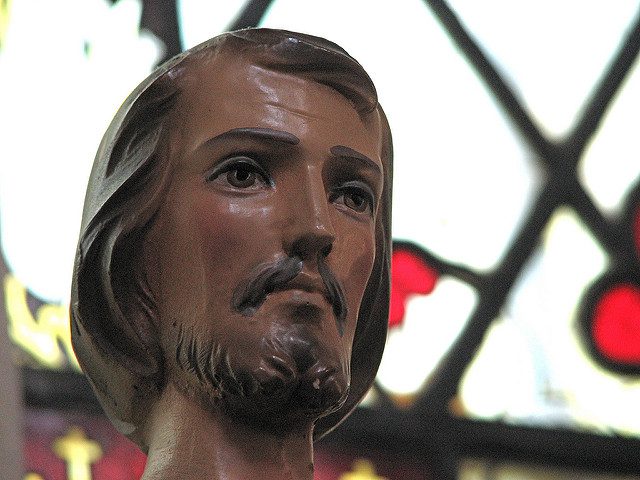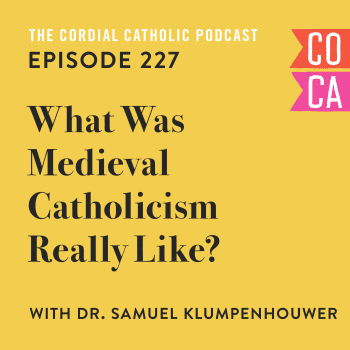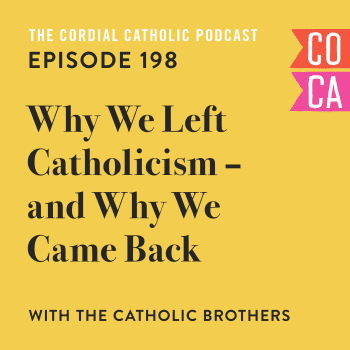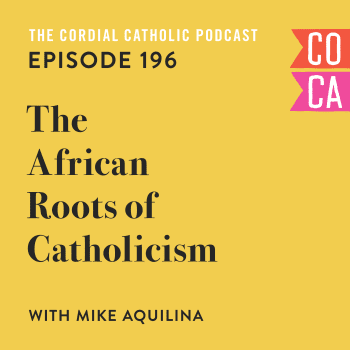
I am the world’s greatest teacher.
I have a mug that says so.
In fact so far I’ve garnered about half a dozen similar mugs over a nearly decade’s long career. So it must be true.
I recently lent a friend my copy of The Case for Jesus by Brant Pitre. It’s far and away the best case for a real, historical Jesus. He does a great job of laying out, in a fulsome and scholarly way, the argument’s for Jesus existence in honest-to-goodness space and time.
And for his resurrection from the dead.
And it’s this, his resurrection, that I’ve been particularly thinking about lately. It’s this that the conversation with my friend orbited around, and why I lent him my book. Because it’s one thing to agree on the existence of a historical Jesus—that’s one conclusion that a person could come to—but another entirely to agree that he’s been raised from the dead.
So, has he? And what proof do we have?
Here our eyewitnesses are key.
We have plenty of eyewitness accounts of the life of Christ. That he lived and is a historical figure it beyond the realm of debate for serious academics—he lived; he was an actual person. The sources are clear.
On the account of his resurrection, however, we have equally good evidence if we’re willing to take their accounts seriously.
In fact, the Gospels record numerous witnesses to Jesus resurrection, his empty tomb, and his post-resurrection appearances. These witnesses saw something and their written accounts have been passed on to us. Accounts which began to be written down and circulated during their lifetime but also during the lifetimes of other witnesses, and naysayers.
Think about what this means. I’ll give you an example.
If I’m playing baseball with a group of friends and hit a double most of the friends in my group, because of the nature of the sport, will have seen me hitting a double.
If I show up at a friend’s house the following week bragging about the “home run” that I hit when we were playing baseball it won’t be long before my friend calls shenanigans.
I didn’t get a home run. No one saw it happen. In fact, everyone there saw me hit a double instead.
Likewise for the resurrection.
The eyewitness accounts recorded in the Gospels are so powerful precisely because they stood the test of peer pressure and scrutiny.
As the Early Church wrestled with its understanding of who Jesus was, their mission, and what to believe a plethora of strange and bizarre writings, ideas, and beliefs cropped up and each one, in turn, was tossed out by these foundational Christians. That the fact of the resurrection remained, and is so central to the Gospels and the letters that follow, demonstrate its position as both an orthodox belief and a historical reality.
Simply put, if Jesus’s followers, after his death, made up the resurrection to make themselves feel better such a claim would’ve never realistically stood up to public scrutiny.
Nevermind the scrutiny of the brutally oppressive and violent Roman Empire—which saw Christians as a threat, I might add.
OK, so what if the resurrection was just a hallucination, a lie, or merely a myth?
If it were a lie, as I’ve said, it simply wouldn’t stand up in the court of public opinion. A movement as large as Christianity became, from its meager roots, would’ve never have been able to spring up based on a simple lie for the same reason those that saw Jesus resurrected could’ve have been hallucinating: there are simply too many witnesses.
If everyone single person who saw Jesus resurrected were lying or hallucinating it’s either the greatest and most unachievable con game in history or the most widespread and remarkable case of mass hallucination ever recorded.
It simply doesn’t compute.
But maybe it was a myth.
I want to pause here, briefly, so answer a question I posed at the beginning: Does the resurrection matter? And I want to say an emphatic yes. It does. In fact, it changes everything.
I want to say that here because the idea of the resurrection as a myth is probably the most pervasive one going right now. And it makes the resurrection not matter.
But it wasn’t a myth.
As Brant Pitre, and other scholars alongside him, aptly point out the Gospels of the New Testament were not written and were never intended to be read as mere myths. They’re a form of ancient biography, and it’s a well-understood genre too.
While other collected books in the Bible, like parts of Genesis, may be written allegorically, the authors of the New Testament—who recorded the stories of Jesus’s life, death, and resurrection—did not intend theirs to be read as anything but straight up fact.
In fact, if the Gospels were really presented a kind of mythical Jesus who lived, died, and rose from the dead, then surely public opinion and discourse would rise up against them. Remember, the Gospel accounts began circulating within the lifetime of those that had seen and heard Jesus—resurrected and otherwise.
And, besides, the Gospels aren’t written as a myth.
These people knew Jesus, and wrote what they really knew about him just like the students who’ve mugged me in my career have known me too, right?
Sadly though, I’m probably not the world’s greatest teacher. Despite the mugs, and the eyewitness accounts, it probably doesn’t bode well for me.
Great, maybe? But world’s greatest?
But the resurrection, this is something different. Our wealth of evidence suggest it wasn’t a lie, it wasn’t a myth, an embellishment (thanks anyway Kindergarten students) or a mass hallucination. What the evidence points to is its reality: Jesus rose from the dead.
And this does change everything because it means that what Jesus said—what he taught about Himself, how to live, and what it all means—means something. And deserves our much closer inspection and attention.
Stay in touch! Like The Cordial Catholic on Facebook:












